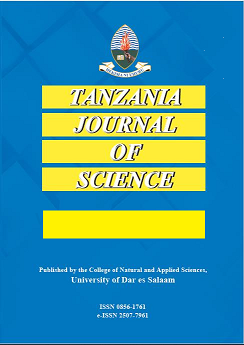Effect of high pressurized carbon dioxide on Escherichia coli
Abstract
Carbon dioxide at high pressure can retard microbial growth and sometimes kill microorganisms depending on values of applied pressure, temperature and exposure time. In this study the effect of high pressurised carbon dioxide (HPCD) on Escherichia coli was investigated. Culture of E. coli was subjected to high pressurised carbon dioxide at 15, 25 and 35 bar, and varying exposure times of 20, 40, 60 and 90 minutes at room temperature (27 oC). Microbial inactivation increased with pressure and exposure time. For the first 20 minutes reduction of viable microbial cells was 18%, 30% and 36% at 15, 25 and 35 bar, respectively. Higher microbial inactivation values were achieved at 40, 60, and 90 minutes. Decimal reduction times were 127, 93 and 75 minutes at 15, 25, and 35 bar, respectively. The pH values of treated samples decreased with increasing pressure and treatment time from approximately neutral to 5.71 at 15 bar, and 5.02 at 35 bar. It was concluded that high pressurised carbon dioxide has antimicrobial effect on E. coli bacteria. With further studies, HPCD microbial deactivation can be used for foods preservation as a alternative technology to conventional heat pasteurisation and sterilization.


